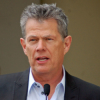David Foster

David Foster
David Walter Foster, OC, OBC, is a Canadian musician, record producer, composer, songwriter, and arranger. He has been a producer for musicians including Alice Cooper, Christina Aguilera, Andrea Bocelli, Toni Braxton, Michael Bublé, Chicago, Natalie Cole, The Corrs, Céline Dion, Jackie Evancho, Kenny G, Josh Groban, Whitney Houston, Jennifer Lopez, Kenny Rogers, Seal, Rod Stewart, Donna Summer, Olivia Newton-John, Madonna, Barbra Streisand, and Westlife. Foster has won 16 Grammy Awards from 47 nominations. He is the chairman of Verve Records...
NationalityCanadian
ProfessionMusic Producer
Date of Birth1 November 1949
CityVictoria, Canada
CountryCanada
What the really great artists do is they're entirely themselves. They're entirely themselves, they've got their own vision, they have their own way of fracturing reality, and if it's authentic and true, you will feel it in your nerve endings.
That everything is on fire, slow fire, and we're all less than a million breaths away from an oblivion more total than we can even bring ourselves to even try to imagine...
If you spend enough time reading or writing, you find a voice, but you also find certain tastes. You find certain writers who when they write, it makes your own brain voice like a tuning fork, and you just resonate with them. And when that happens, reading those writers ... becomes a source of unbelievable joy. It’s like eating candy for the soul. And I sometimes have a hard time understanding how people who don’t have that in their lives make it through the day.
Hear this or not, as you will. Learn it now, or later -- the world has time. Routine, repetition, tedium, monotony, ephemeracy, inconsequence, abstraction, disorder, boredom, angst, ennui -- these are the true hero's enemies, and make no mistake, they are fearsome indeed. For they are real.
Lucky people develop a relationship with a certain kind of art that becomes spiritual, almost religious, and doesn’t mean, you know, church stuff, but it means you’re just never the same.
No wonder we cannot appreciate the really central Kafka joke: that the horrific struggle to establish a human self results in a self whose humanity is inseparable from the horrific struggle. That our endless and impossible journey toward home is in fact our home.
In reality, there is no such thing as not voting: you either vote by voting, or you vote by staying home and tacitly doubling the value of some Diehard's vote.
Are we not all of us fanatics? I say only what you of the U.S.A. pretend you do not know. Attachments are of great seriousness. Choose your attachments carefully. Choose your temple of fanaticism with great care. What you wish to sing of as tragic love is an attachment not carefully chosen. Die for one person? This is a craziness. Persons change, leave, die, become ill. They leave, lie, go mad, have sickness, betray you, die. Your nation outlives you. A cause outlives you.
In the day-to-day trenches of adult life, there is actually no such thing as atheism. There is no such thing as not worshipping. Everybody worships. The only choice we get is what to worship.
Everybody is identical in their secret unspoken belief that way deep down they are different from everyone else.
she committed suicide by putting her extremities down the garbage disposal-first one arm and then, kind of miraculously if you think about it, the other arm.
The entire ball game, in terms of both the exam and life, was what you gave attention to vs. what you willed yourself to not.
How odd I can have all this inside me and to you it’s just words.
Quentin Tarantino is interested in watching somebody's ear getting cut off; David Lynch is interested in the ear.